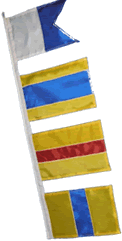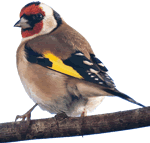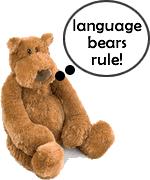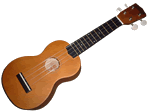The mysterious text below was sent in by a visitor to Omniglot and is a geocache clue that has apparently resisted all attempts to decipher it. Can you help?

A kitten’s growl would not come near the plights of your spoken voice.
You are a banana moon subverting the sun.
Your ear-splitting sequels have a mind of their own.
Demonize your sofa. It will lend forth more peanuts between the cushions.
The tiny sounds of ancient bees resound forth from the forrested coercions between your toes.
The above sentences were generated by the The Surrealist Compliment Generator. They look a bit like things that emerged from a game some friends and I devised involving going around the group saying one word each and trying to connect the words into sentences.
The SCG also throws up surrealist compliments in other languages occasionally. For example:
– Mano a mano, le tue ossiflexe, si starnubbano nel brondio.
– Votre regard est plus penetrant qu’une stalagmite sertie dans son antre d’albatre
– Heizenmizstenwerner ut mal die westernmoviefurter und glipzenglagenheimer zieden un der witzelwaltzerfloggen…
Coming up with surrealist sentences like this in languages you’re learning could be a fun way to practise using them.
The OED defines surrealism as:
“A movement in art and literature seeking to express the subconscious mind by any of a number of different techniques, including the irrational juxtaposition of realistic images, the creation of mysterious symbols, and automatism; art or literature produced by or reminiscent of this movement.”
The word surrealism comes from the French surréalisme, which was coined by Guillaume Apollinaire in 1917.
Here’s a recording in a mystery language.
Can you identify the language, and do you know where it’s spoken?

When any swashes they can find have been thoroughly buckled, or indeed buckles swashed, swashbucklers might hear the exclamation/order ‘splice the mainbrace!’. I’ve often wondered what a mainbrace was and how you would splice one. So I decided to find out.
It turns out that nowadays the order ‘splice the mainbrace’ has nothing to do with the splicing of braces, main or otherwise, but is in fact an order to issue the crew of a navel vessel with an extra ration of rum or grog.
Originally the order referred to the repairing of the mainbrace, the largest of the lines or ropes that control the angle of the yards on a sailing ship. This was a difficult but essential task, as a ship could not be steered without a mainbrace, which was a prime target during battles, and it was customary for an extra ration of rum to be issued after the mainbrace had been successfully spliced. The order continued to be used after sailing ships were no longer used, but referred just to the extra rum ration rather than to the actual mainbrace splicing, and tended to be made after after victory in battle, or on the occasion of a change of a monarch, a royal birth or wedding, or an inspection of the fleet. [source]
The flags on the right are the maritime signal flags for the order ‘splice the mainbrace’.
The word splice, meaning ‘to join (ropes, cables, lines, etc.) by untwisting and interweaving the strands of the ends so as to form one continuous length’ comes from the Middle Dutch word splissen, the origins of which are uncertain [source].
In one of the books I read recently quite a few swashes were buckled, and this got me wondering what exactly was a swash and who you would go about buckling one.
A swashbuckler (/ˈswɒʃˌbʌklə(r)/) is a swaggering bravo or ruffian, or a noisy braggadocio, and first appeared in writing in 1560, according to the OED. It is a combination of two words, swash and buckler:
swash, v. /swɒʃ/
– to dash or cast violently.
– to make a noise as of swords clashing or of a sword beating on a shield; to fence with swords; to bluster with or as with weapons; to lash out; hence, to swagger.
– to dash or splash (water) about; to dash water upon, souse with water or liquid; (of water) to beat with a splash against.
Etymology: imitative of the sound of splashing or agitated water, or of a resounding blow
[source]
buckler, n. /ˈbʌklə(r)/
– a small round shield
– a means of defence; protection, protector.
Etymology: from the Old French boucler, bucler, from the Latin *bucculārius (having a boss) from buccula (visor).
[source].
So now we know. Are there interesting equivalents of swashbuckler in other languages?

Lasair choille or ‘flame of the woods’ is the Irish name for the goldfinch (carduelis carduelis), two of which I saw on my apple tree this morning. I like to know the names of birds and other creatures in the my languages, and particularly liked the Irish version when I discovered it.
The Irish word lasair means flame or blame comes from las (to light, inflame, ignite, blush). It probably shares the same root as the English word lamp, which comes from the French word lampe, from the Latin lampas, from the Greek λαμπάς (to shine).
In Welsh the goldfinch is known as nico, but has many other names, including jac nico, teiliwr llundain (London tailor), peneuryn (head gold jewel?), eurbinc (gold pink), pobliw (every colour), soldiwr bach y werddon (little soldier of the green place/oasis), cnot, ysnoden felen (yellow band) and asgell aur (gold wing).
The English word finch comes from the Old English finc, possibly from the Old Germanic *finki-z or finkjon, which is thought to be of echoic origin.
Names for the goldfinch in many other languages can be found on the avibase.
Here’s a recording in a mystery language.
Can you identify the language, and do you know where it’s spoken?
Today I came across this quote from Francis Bacon on YourVietnamese.com:
“Men imagine that their minds have the command of language, but it often happens that language bears rule over their minds.”

At first I interpreted it as meaning that “language bears (i.e. linguistically-gifted bears) rule over their minds”, rather than the more likely meaning that “language bears rule over their minds”. I don’t know if Mr Bacon intended this to be a pun, but that’s what it is to me.
This got me thinking about what kind of creature a language bear might be – perhaps a real bear that have been taught or acquired a spoken or signed human language; or a talking teddy bear of some kind, like the BábógBaby, an Irish-speaking teddy.
The expression ‘to bear rule’ is not a common one, as far as I’m aware, and sounds like something you would find in the Bible. For example, the King James version of Daniel 2:39 is “And after thee shall arise another kingdom inferior to thee, and another third kingdom of brass, which shall bear rule over all the earth.”, and Esther 1:22 is “For he sent letters into all the king’s provinces, into every province according to the writing thereof, and to every people after their language, that every man should bear rule in his own house, and that it should be published according to the language of every people.” – the king in question was Ahasuerus, who is identified with Xerxes I (519-465 BC).

Yesterday I bought myself a ukulele, something I’ve been thinking about doing for a while. I already play the guitar and mandolin, and had been thinking about trying other stringed instruments, such as the ukulele, banjo and bouzouki. A while ago I saw a poster about the Bangor Uke Club / Clwb Uke Bangor and thought it might be cool to join it, and yesterday I finally did.
The usual story is that the word ukulele (/juːkəˈleɪliː/) comes from the Hawaiʻian words ʻuku /Ɂuku/ – louse, flea; small, tiny, and lele /lele/ – to fly, jump, leap, hop, skip, swing, bounce, and many other meanings.
The OED describes the ukulele as “a small four-stringed Hawaiʻian guitar that is a development of a Portuguese instrument introduced to the island c1879”, and the Online Etymology Dictionary says that the name ukulele or ‘leaping flea’ comes from the rapid movement of the fingers used to play it.

According to the ‘Ukulele Guild of Hawai’i, ‘ukuleles developed from a type of small guitar known as machete do braga or braguinha (see right) from Madeira. They also mention that there is some uncertainity about the origins of the name ukulele – one story is that a certain Edward Purvis, an English solider who was assistant chamberlain to the Hawaiʻian King Kalākaua in the 1880s, and who was a small man with a lively playing style on this instrument, was nicknamed ‘ukulele (dancing flea) by the Hawaiʻians, who gave the same name to the instrument.
The earliest written reference to this instrument, in a travel book about Hawai‘i, dates back to 1891 and it was spelt ukelele rather than ukulele, a word which didn’t appear in print until 1895 in the Hawaiʻian Gazette. Both spellings were used interchangeably for a period, and the former possibly comes from the Hawaiʻian word ʻukē – to swing, sway; tap, rap, tick, thud.
The Ukulele Orchestra of Great Britain mention a number of possible origins of the word ukulele: a certain João Fernandes from Madeira was nicknamed ‘ukulele (dancing flea) by the Hawai‘ians, who were impressed by his virtuosity and speed on the braguinha, and the way his fingers jumped about, and the name became associated with the instrument as well. Alternatively it was Edward Purvis who acquired the nickname. Or that the name comes from uku (a tribute, reward, fee) and lele (to land, disembark); or from ʻūkēkē lele (‘dancing ʻūkēkē’ – a type of musical bow); or that Gabriel Davian and Judge W. L. Wilcox coined and translated the name, joking that the way one scratched at it, the instrument must have been a jumping flea.
Other Hawaiʻian expressions featuring lele include:
– lele māmā – to fly swiftly, dart
– hoʻo.lele – to cause to fly; to fly, as a kite; to disembark, to embark, as on a project; to palpitate; to enlarge or project, as pictures
– hoʻolele leo – radio broadcast, broadcaster, microphone, ventriloquism, ventriloquist
– hoʻolele hua kēpau -to set type
– mea hoʻolele leo – microphone

Chionnee mee ukelele jea, as riyr hie mee dys yn Bangor Uke Club, possan noa y ghow toshaight kuse dy çhiaghteeyn er dy henney. Honnick mee posteyr my-e-chione, as smooinee mee dy beagh vooar yn spoyrt eh, as dy beagh eh taitnyssagh – as va eh. Va tree deiney elley ayn riyr – ta unnane oc jannoo ukeleleyn, ta unnane troggal pannylyn greiney, as er lhiam dy vel unnane jannoo studeyrys er yn kiaull.